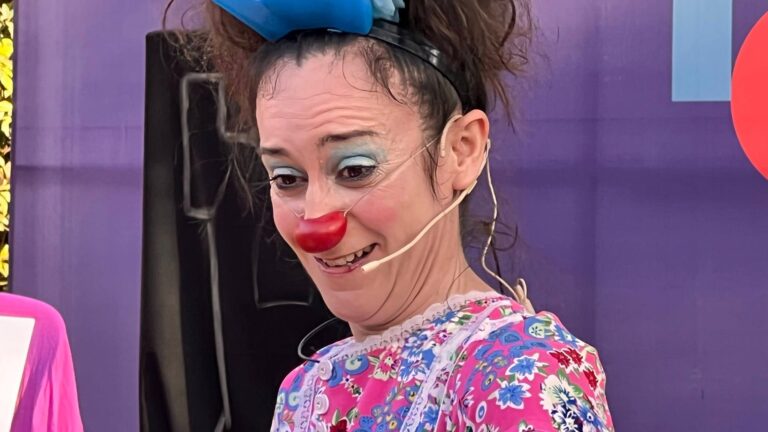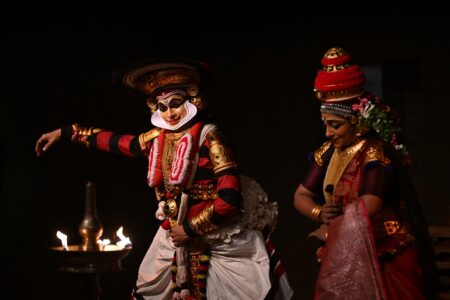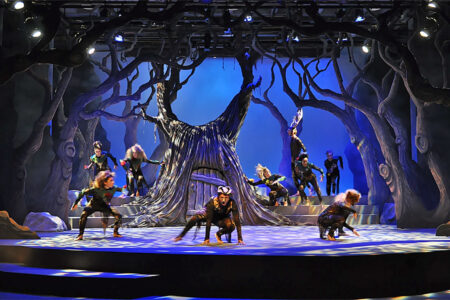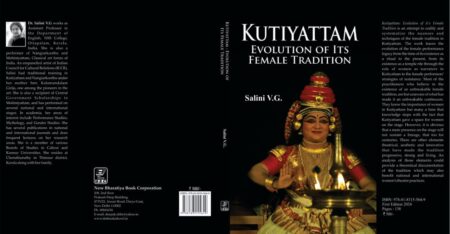Monica Santos Zamorano’s journey from being a banker in Spain to a professional clown in India is all about breaking barriers and following her heart. In a candid interview with IAR’s Renu Ramnath, she talks about the fun, freedom and the philosophy of being a clown.
How did you become a clown?
It’s such a long story! Many artistes discover the clown in them very early in life, but for me, that was not the case. I discovered it casually when I was 24 or 25! I studied Economics, got a job in a bank in Barcelona and was very successful in my profession. Originally I’m from the north of Spain but moved to Barcelona for work. Then, I came across a poster that said, ‘Discover the Clown in You!’ I applied for this workshop, and it just changed everything! It was an intensive one-week workshop. You know, the clown workshops, especially in the beginning, are all about freedom, enjoying life and a lot of other things. I felt, Hey, I want more! Clown actually came into my life like an orchestra, with a Bam!
One of the basics of the clown is, you’ve freedom, you’re in the moment, you can do whatever you want. And as I always explain, children are the best clowns, till the moment we grow up and start to put up walls. The first clown workshops are all about having fun and breaking down those walls. So, when you discover that you can do everything, that you can love everything, that you can be nonsense, look into the eyes and be real, it tells you something!
In Barcelona, there were many clown workshops and I spent all my holidays and free time attending the workshops, in training, training, training! And I was very scared too because I was still working in the bank. It took me a lot of time. I felt like I was a clown, an artist and got something inside me. But, the bank was paying my bills and there was my family!
But the turning point was when I met some people from Mexico, who were with an NGO that worked in hospitals. That inspired me. And there was no point of return. I created another NGO in Spain, to work with senior citizens. When you work with hospitals, you have to work in the mornings, but I was still with the bank. So, for two years, I worked with senior citizens.
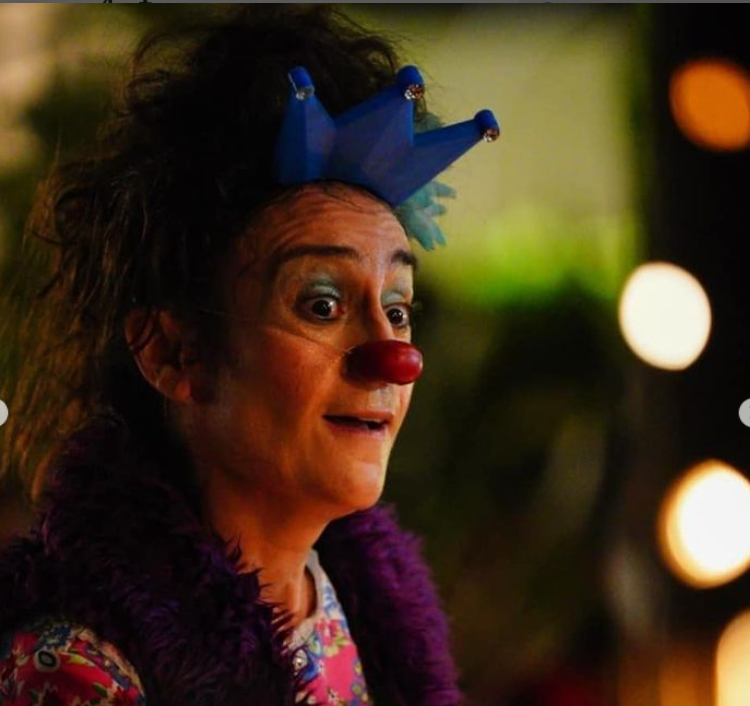
Then, I decided to come to India. I was already working with two NGOs from Spain. In 2013, I knocked on the door of an NGO working in India, called Rural Development Trust, based in Anantapur in Andhra Pradesh (founded by the Jesuit missionary Vicente Ferrer Moncho from Barcelona, in 1969). At first, they said, No. Then the next year, in 2014, I approached them again, and they said, Yes!
And then you quit your bank job?
No, no; it was just for three weeks, but that changed my life. And that made me change everything. I’d arrived with the idea that they work only in the hospitals. But they gave me the schedule of the three weeks and told me that I was going to work with blind people and deaf people. I have a video and photos of that first performance in India.
So, when I came back to Barcelona, to the bank, the next day, I was attending a meeting about selling insurance! I thought, what am I doing here! I wanted to return to India, and become a clown. But it still took me two years! I had to go to a psychologist because I was not brave enough, till one day I said, ‘Enough!’
In 2016 I left everything. There was quite a drama in my family! I came here with a bag and my red nose. But I didn’t know where to start. I was not from theatre, I did not have enough training, I was working in a bank till then. In the bank, I was a hippie, a clown, and in the clown world, I was working in a bank! I was super scared. But, what I discovered was, when you put your energy and follow your heart, you’d develop skills you never knew were inside you. If you just start, have the commitment and don’t give up, you can manage. That was the strength I had when I came here in 2016.
So, the doors start to open. I got contacts to work in Tata Memorial Hospital, Mumbai. They understood. Slowly, I started to have different programs with differently-abled kids, with women rescued from prostitution, and with homes for children and families that come or from all India for treatment in Tata Memorial. I believe that clown and laughter can help a lot in the process of pain. I cannot change the painful situations, but I can accompany them. Because the clown also can move a lot of emotions. So, I was doing a lot of things.
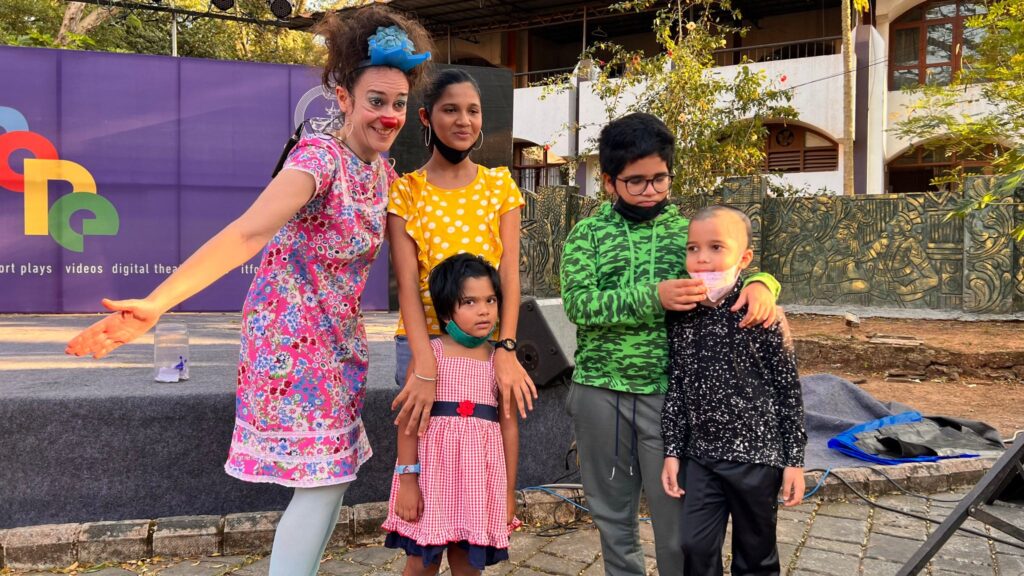
In the end, I’d been here for five years. I created my own NGO, called the Big Smiles. It was created in Spain but works here. Now I can say that my purpose is giving emotional support through laughter, through humour and through clowning, in places where there’s pain. But I also want to promote the clown profession in India. That means, I’m very focused on training people and on creating local groups to work for Indian people. I don’t want to be the white person to come and say, okay, I’m going to save you! Here there are great artists, and we can collaborate and I respect the culture a lot. I feel Indian!
I really find it very interesting that you came to India to start working as a clown.
I’d been to India a lot of times before, as a tourist. I’d fallen in love with India already. My work here is the result of two passions. I cannot live life without feeling and for me, it’s about passion. So, one is my profession, I love what I do. And second is this country. I feel them in my heart. I don’t know, I feel at home here, I feel very comfortable. I don’t understand most of the things but I feel at home.
Maybe you were an Indian in your previous life!
I have no doubt about this. So, little by little, and it’s very interesting, things happened.
Where were you during the Covid-19 lockdown?
In Mumbai, of course. But I could not go to the Tata Memorial due to the pandemic. So I started to create videos and developed online workshops. And thanks to this I’m here because, one of the clowns who took my workshop, lives here, and contacted Hope Fest.
Now I’m working in Wadia hospital. It’s a big step for me and for the profession because I am considered a staff of the hospital. I belong to the Palliative Care Unit. We have two psychologists, counsellors, two doctors, two nurses, one clown and one librarian. This unit is doing some amazing work because we are accompanying the people that are going to die and I see the effects every time. I’m also introducing myself to the world of real clowns, art. Yesterday’s show was for children and it was born in an orphanage.
Since I usually work with hospitals, when I’m invited to festivals, I try to adapt. It’s different from working with NGOs. Here, I’m super happy with the festival. They are incredible and it’s very nice because also the idea of the festival is to bring hope and to again bring together the artists and the audience. For me, it is being with people that are alive. Normally, my audience is children who are sick and intubated. I’d be happy if they just smile, or if they’re just moving their fingers to play the ukulele and I celebrate these. But at the festival, when I see people clapping, or when you say that people loved my show, it’s very nice. I don’t know how to explain the feeling. I’m so happy here. It’s amazing.
And I remember a boy a few days ago at the Hope Fest asked you a question about the clown’s red nose — on why clowns use the nose. Could you elaborate on that?
Actually, the clown has evolved so much that there are clowns who don’t use the nose. But I like to use it. There are a lot of clowns who don’t need it because it is an attitude, a state. But to reach this state, we use our masks. In fact, the red nose is called the smallest mask in the world! So all the theatres, all the people that have made Commedia dell’Arte or mask workshops know that you behave differently. The red nose gives us that state of becoming a child. Typically, there is this stereotype of the clown making funny noises and movements. But, you can’t become a child with funny movements, but you’ve to become one by heart. You can be a clown even if you’re 80. It’s a state of freedom or innocence, and we manage to reach that with the help of the mask in our nose.
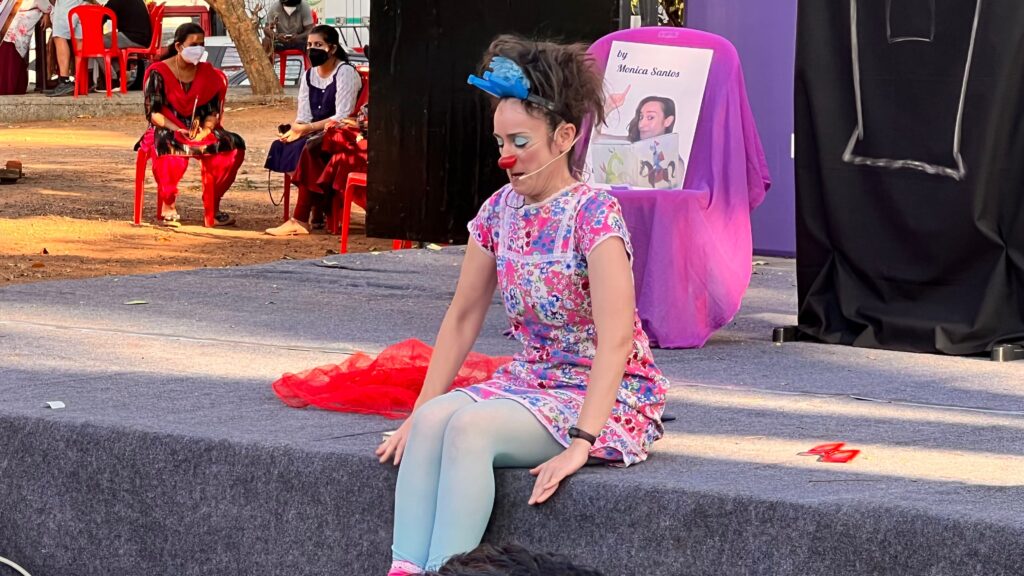
With the red nose, we illuminate our eyes. One of the powers of the clowns is that we share all that happens with us, with the audience and most of the time we’re doing it with eye-to-eye contact. So the red nose also helps us to illuminate our appearance.
Another thing is, when we were children, our noses were very small. And then we grow up, and get very big and strange nose! There are grown-ups who still have a small nose. The nose gives you personality, you know, and makes you mature! With your nose, your face changes. You hide your nose, your maturity, your age, everything disappears!
The red nose is like the voice of our personality. Everyone feels in a different way, so everyone has different clowns within them. Obviously, it’s not regulated by training. Theatre is more regulated, but for the clown, there are no teachers, there are no schools. Everyone teaches accordingly, how they feel and what they have discovered during their own training. So there are as many teachers as there are clowns.
Did you go to the École Jacques Lecoq?
No, but my teachers followed the line of Lecoq.
So now, which school or style of clown performance do you follow? Or did you develop your own?
Yes, more or less! I think, for my story, there are people that have been more into theatre and then discover their clown and move…
That’s what I was thinking.
Exactly! They have more level or skills of lights, theatre, stage and a huge stage and scenography. But I started out with social themes, and I’ve to go to orphanages and hospitals. I can’t bring too many things with me because I’m also working with children. The children would take your objects, then you’d get more worried about the objects than about the performance. And I work alone. That is a big handicap. When you have a team of at least two, you can have more energy. You can create more balance and more surprises. But, when you’re alone, you can’t do these things.
In the shows that I create, I have the audience as my partners. I make a lot of interactive shows. We’re creators, we create from zero, we create from being in the moment, and it comes from that moment when you understand something. I invite a lot of people to create with me and I think this is the magic that happens when you make people be a part of you when you make them feel they’re a part. And the second one is, we make people feel all the time. We’re brave enough to show our vulnerability and our humanity and when we are able to do this, the people are with us.
For me, it’s a deeper philosophy. Now, the clown is my life. So I think the philosophy is totally adapted to my way of thinking and to my way of life. Being human means recognizing you’re scared, recognizing that you’re not good, recognizing that you love and maybe you’re not loved in return. And that is the beauty of life because everyone has the same problems. It doesn’t matter if you are in India, in Singapore, in Spain or in the States. So when you are able to see, immediately something with the audience connects. Sometimes it’s not so important to make people laugh out loud.
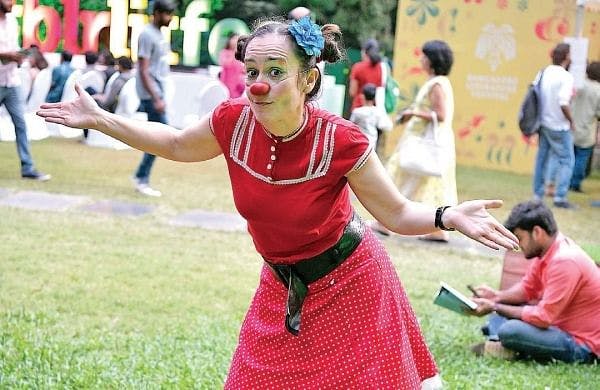
Usually, in all the shows, people who introduce me say that this show was created in the lockdown, we’re talking about this and that, you know, we’ve a message etc. Obviously, the clown can give a lot of messages. I’ve done shows for sex workers and so on. But for me, hearing all that makes me very worried, and I think I’m just going to have fun. So, that’s the beauty of the clowns. Sometimes, it’s only entertaining and makes you forget the people, their problems, and sometimes you can go into it like everything is okay, life is good, no problem.
So when you were working in Mumbai, which language did you use?
I’m in the process of studying Hindi. Mein Hindi sikhthi hum! My English, you know how it is, but I’m very expressive. I think I can communicate even though I’m not a performer. I use my body, my eyes to talk. Again it is a question of if you want to communicate, it is more than talk, and it’s more than words. So even when people are very serious, in the beginning, with the hospital’s owner and then I get crazy. And in the work with the parents with the nurses, it became very easy because at the end I listen and talk with a heart. There is nothing else, with the nose or without the nose, you know. Because again it is a lot of …. I am here for you. And I am going to change the atmosphere.
I work with the children. I work with parents. I work with all the staff. It doesn’t matter if they’re cleaning, I enter the hospital with a “Good morning”. Maybe I had a bad night, could not sleep because of the mosquitoes, but I just enter the door of the hospital and say, Good Morning, Everyone! And for this no language is necessary, Hindi is not necessary.. And I’m learning. In fact, now I’m taking classes in Hindi but most of my Hindi comes from my thought that I’m going to make this performance and how can I make people understand what I’m going to say. Thus, I learn the words. And so, now I’m trying to learn little words of Marathi because it’s true that in a hospital in Mumbai, lots of them, the parents, speak Marathi.

